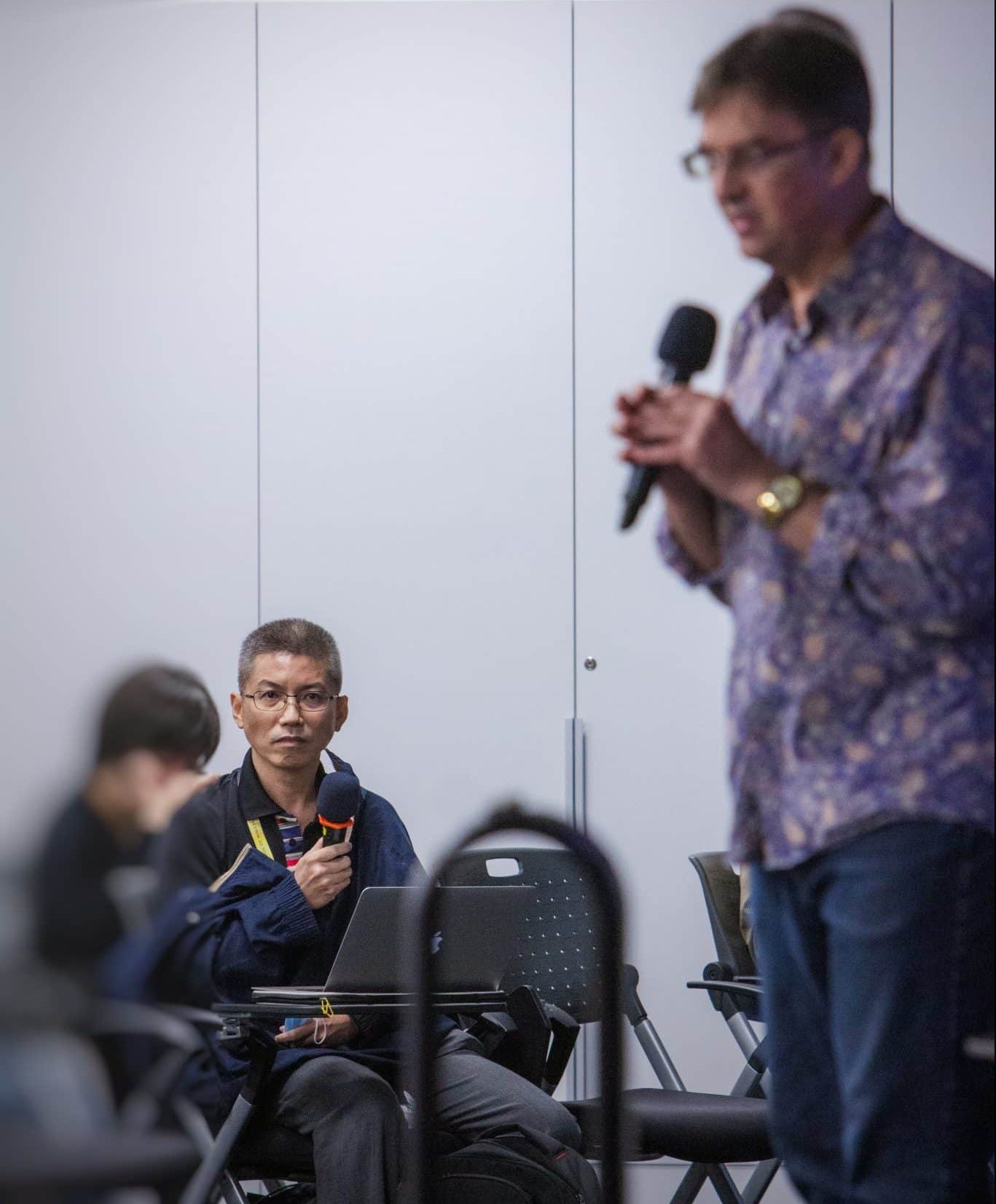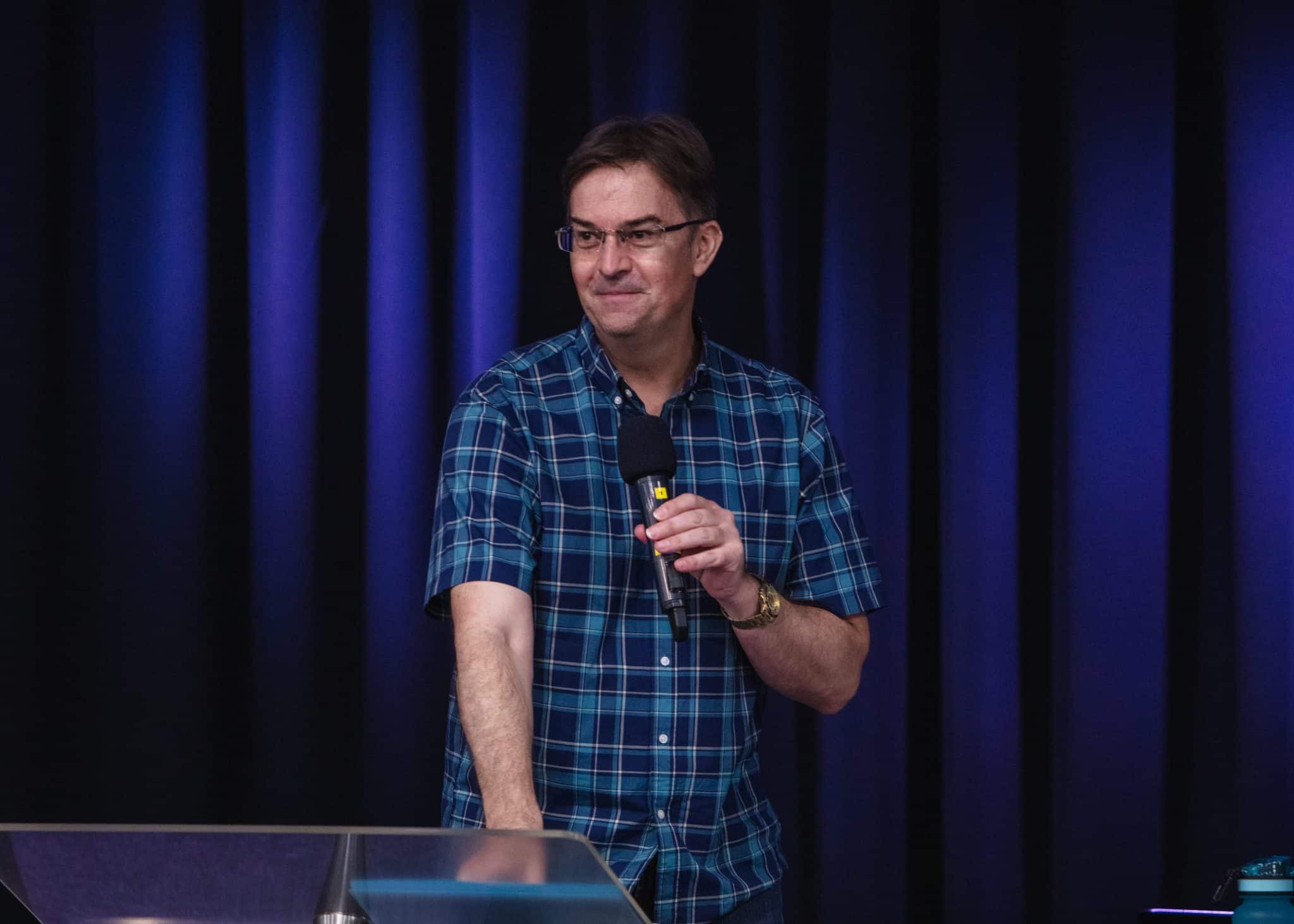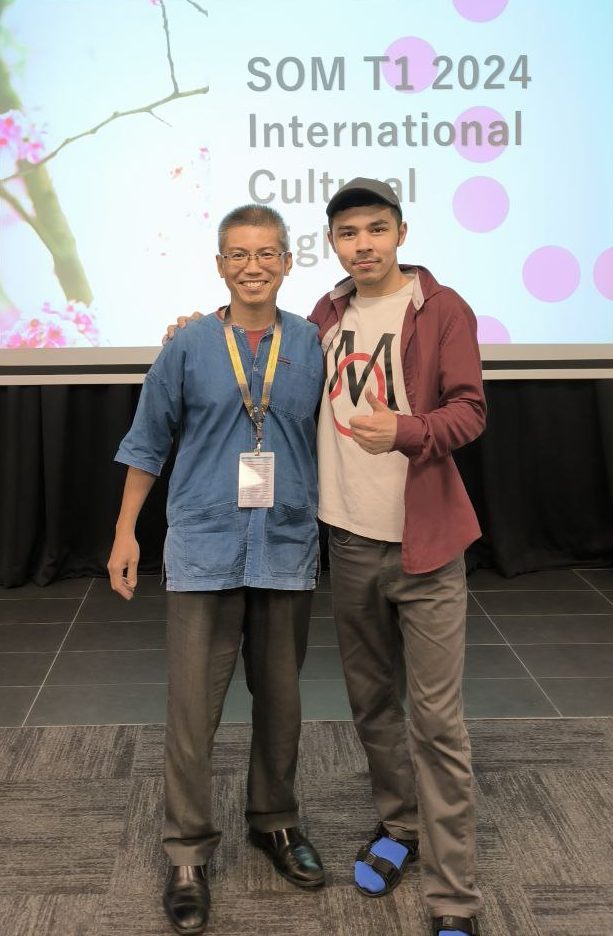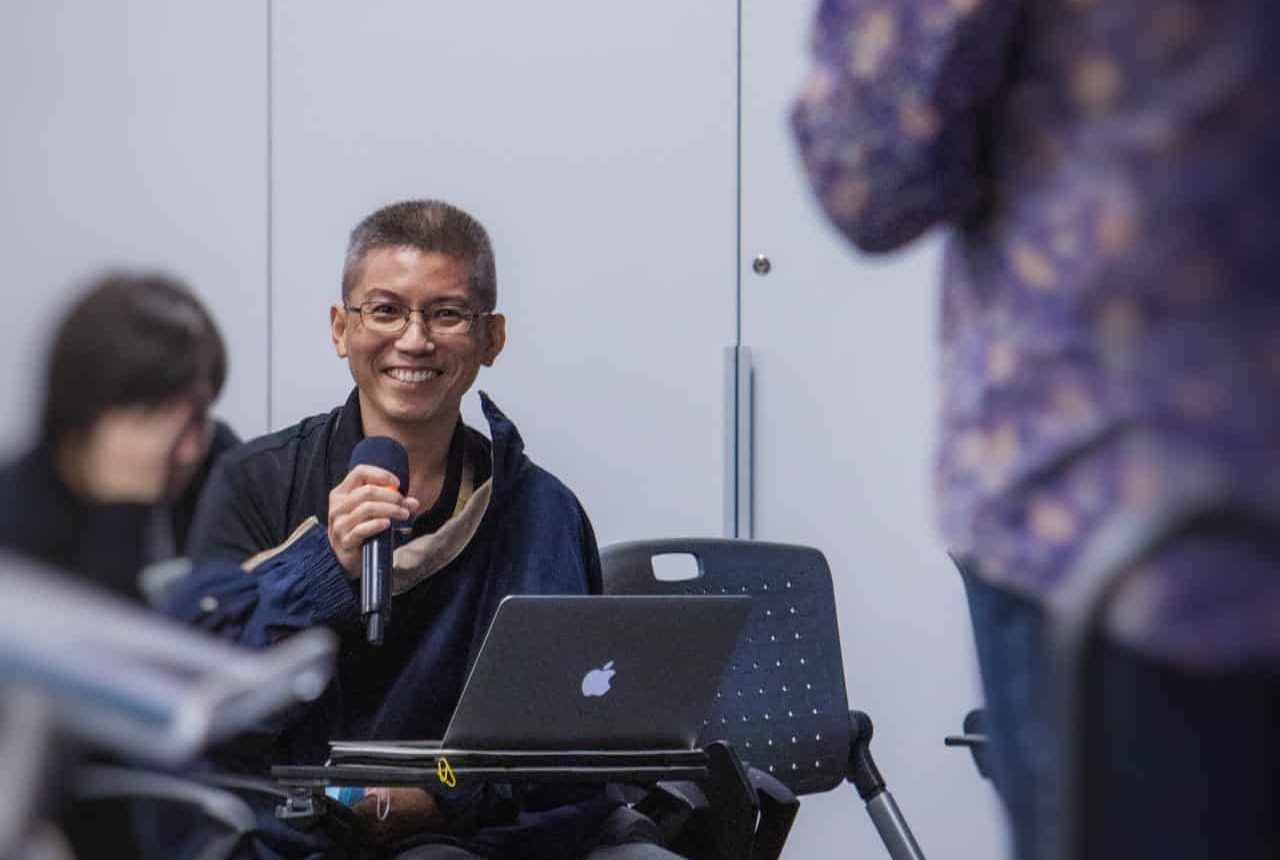

I had two problems with God.
First, I couldn’t decide if God existed, so you might say I was agnostic. That’s a fancy term that means I’m someone who thinks we can’t prove whether God exists or not.
I think like this because I see that all scientific evidence for God is unable to provide definite proof. We always have to end up drawing conclusions.
Second, even if we accept that God does exist, I cannot believe that He actually cares about what we’re going through. The God I see might be powerful, but He doesn’t seem to have compassion. As long as He achieves His goals, He doesn’t mind anyone going through suffering.
I might have bordered on being offensive, but I really wanted answers.
I contemplated studying about God, and somehow the name Tung Ling Bible School came up a few times over the past couple of years.
That was when I wondered if a course with ministry time woven into lectures might be more suitable for me than a purely academic one.
Then a friend who had attended the School of Ministry (SOM) at Tung Ling told my wife I should sign up. With her permission, the decision was just about made.
So there I – the doubt capital of the world – went, full of questions.
I was the prickly fellow who challenged everyone’s faith whenever I had the chance. Because if I didn’t ask the lecturers who were supposed to be experts in this field, then who else could I ask?
One of our first lecturers was Pastor Jeremy Witherow who lectured on Prophecy. Maybe it was the topic, or maybe it was just his luck, but he got the brunt of my attack.

“If I didn’t ask the lecturers who were supposed to be experts in this field, then who else could I ask?” writes Teck Siong (left), pictured with Pastor Jeremy. Photos by Isaac Lim, courtesy of Tung Ling Bible School unless otherwise stated.
For one especially difficult question, he joked: “Ooh, the Atheist Convention is next door!”
I guess that might have been what my classmates were thinking too – that I had come to the wrong class. Why was I there when I obviously didn’t seem to believe in God?
My classmates were thinking I had come to the wrong class. Why was I there when I didn’t believe in God?
They also had their fair share of challenges from me, especially those who shared their testimonies during morning chapel. I asked them questions like: “How do you know it was God? Could it have been a coincidence?”
I might have bordered on being offensive, but I really wanted answers to things like: “You were depressed, was it possible you recovered on your own? Could you have credited God too soon with overcoming your problem when it could have been something else? Everyone knows that time heals all wounds after all.”
However, the answer that softened my heart was Pastor Jeremy’s reply when I argued that Christianity is a religion that targets the vulnerable.
“The rich and powerful do not need God,” I said.
“Only the poor, the weak, the down-and-out. In short, only people who can’t make it in life need God as a crutch. The strong certainly don’t because they can handle life’s challenges.”
Pastor Jeremy’s reply? “Yes, I need a crutch because I’m weak. I need God to give me strength to deal with life. Everyone needs a crutch. What’s yours, a bottle of whiskey? Your bank account?”

“Yes, I need a crutch because I’m weak. I need God to give me strength to deal with life,” said Pastor Jeremy, responding to one of Teck Siong’s many questions.
Then I realised that I didn’t want to need a crutch. I didn’t want to be weak. And I didn’t want to be wrong. So I didn’t want to need God.
However, I realised I do have a crutch – my crutch is logic.
I was someone who was deathly afraid of making mistakes, so I had to think through many things. Therefore I was anxious when making decisions, and I took ages to commit to anything, even simple things like a lunch appointment with friends.
However, I realised I do have a crutch – my crutch is logic.
I still remember vividly the traumatic experience of having to make a “major” decision – choosing between two subjects in school. It was so bad the teacher nearly panicked when she saw me come to her the day after I had submitted my choice.
“No, you can’t change anymore!” she actually said.
If choosing a subject was so difficult for me, imagine having to decide whether or not to follow Jesus.
Another thing I had a problem with? Experiencing God’s presence.
I was extremely sceptical about that. As my doubts towards God made me rely heavily on my intellect, I demanded lots of scientific evidence for God.
Yet most people’s accounts of God’s presence are based on a subjective experience that cannot be proven or replicated.
That made me conclude that God exists only in the imagination. If you’re willing to believe, you will experience God. If you don’t, then too bad.
I was determined that I would never be one of those emotional fools.
It didn’t help that most such experiences involved weeping. Crying was a no-no. It was emotionalism at its worst.
If perceiving God means being emotional, then any skilled scam artist can manipulate the feelings of the gullible and convince them of God. I was determined at that time I would never be one of those emotional fools.
Ironically, I was one of those who wept like a fool at a module called The Joy of Personal Bible Study.
We were studying the very familiar Psalm 42 (As the deer pants for the water) when I felt a strong surge of emotions. I tried to push down that reaction because it didn’t make sense. Why would I want to cry at such familiar words?
But that day, those words made me break down and I sobbed. I didn’t have the energy to think too much; I just gave in to the emotions.
I am ashamed to admit it, but I felt a sense of relief at the tears. It was like some tension was released.
Sometimes I just want to give in and say, “God, I can’t do it, but you can.”
Today, I realise that it might have been the tension of having to guard myself against the world, the weight of trying to be safe, the tiredness of avoiding mistakes and controlling outcomes.
How many precautions can we take? How many blind spots can we watch out for?
Sometimes I just want to give in and say, “God, I can’t do it, but you can.”
But that would mean I’m weak and I can’t handle it. That would never do.
Then something broke my pattern of resistance.
I was speaking with a classmate, Samuil, about my doubts. Instead of saying all the standard “you must believe” defences, he empathised with my doubt, and agreed that indeed nothing can prove God’s existence.
That allowed me to stop having to defend my doubts, to prove that my doubts were logical. Once that happened, I was able to see that I shouldn’t think of science as failing to prove God. Instead I recognised that this left space for faith.

“Samuil’s response allowed me to stop having to prove that my doubts were logical. Once that happened, I was able to recognise that this left space for faith,” said Teck Siong. Photo courtesy of Lim Teck Siong.
I also learned many things from my other classmates during my time at Tung Ling.
One thing that struck me was my classmates’ attitude towards giving thanks.
They acknowledged God even when the problem was still not fully resolved. They faced many challenges like bankruptcy, the passing of loved ones, medical issues.
When they shared their stories and gave thanks, it felt as if the problems were gone.
After I spoke with them, I realised that they still faced the issues. How could they give thanks when there were still debts to pay, or when there might still be a relapse in their illnesses? I couldn’t imagine myself doing such a thing.

“One thing that struck me was my classmates’ attitude towards giving thanks,” writes Teck Siong. Samuil (front, left) comes from Uzbekistan. Photo courtesy of the youths of SOM 2024 Term 1.
When something seems to be better, it might have been just a random change in circumstances; but the basic problem is still not solved, right? And things can definitely still get worse.
However these classmates taught me that they were grateful for each improvement.
When then would I consider a problem settled? … When would I give thanks to God? On my deathbed?
And I realised that my lack of faith in God also aggravated another issue: the fear of uncertainty.
I would never consider a problem resolved if I thought there was a chance things might get worse. So I would definitely not give thanks to God if I thought a problem was not completely dealt with.
This also meant that I couldn’t make decisions because I would always worry that a choice – however logically made – would turn out to be wrong.
However, if I think like this, when then would I consider a problem settled? When would I consider a decision to be well made? When would I give thanks to God? On my deathbed?
I wish I can say that my time at Tung Ling has removed all doubts, answered all my questions, cured me of all my issues, but that is not true.
I would like to say that now, I am a strong, faithful follower of Christ. However, that also isn’t true.
My questions still haunt me now and then, but I am not paralysed by them anymore.

“Of all the possible answers provided by the world, God’s word still makes the most sense,” concludes Teck Siong. “So that will serve as my anchor for now.”
I understand that faith means throwing my lot with God. It feels like a surrender, like a cop-out, like I’ve stopped searching for the truth. But that isn’t true either.
For a while, I had given up on ever finding the truth.
Now, I’m even more passionate about looking for the truth. Not everything makes sense, and I would voice my doubts.
But where else can we find the answer?
As Simon Peter said: “Lord, to whom shall we go? You have the words of eternal life.” (John 6:68).
Questions still pop up now and then. However, of all the possible answers provided by the world, God’s word still makes the most sense. So that will serve as my anchor for now.
If you would like to know more about Jesus, click here to find a church near you.
Click here to join our Telegram family for more stories like Teck Siong’s.
RELATED STORIES:
“I hated Christianity even more because it was causing me to lose a friend”
He was an intellectual atheist … until a series of miracles baffled him










